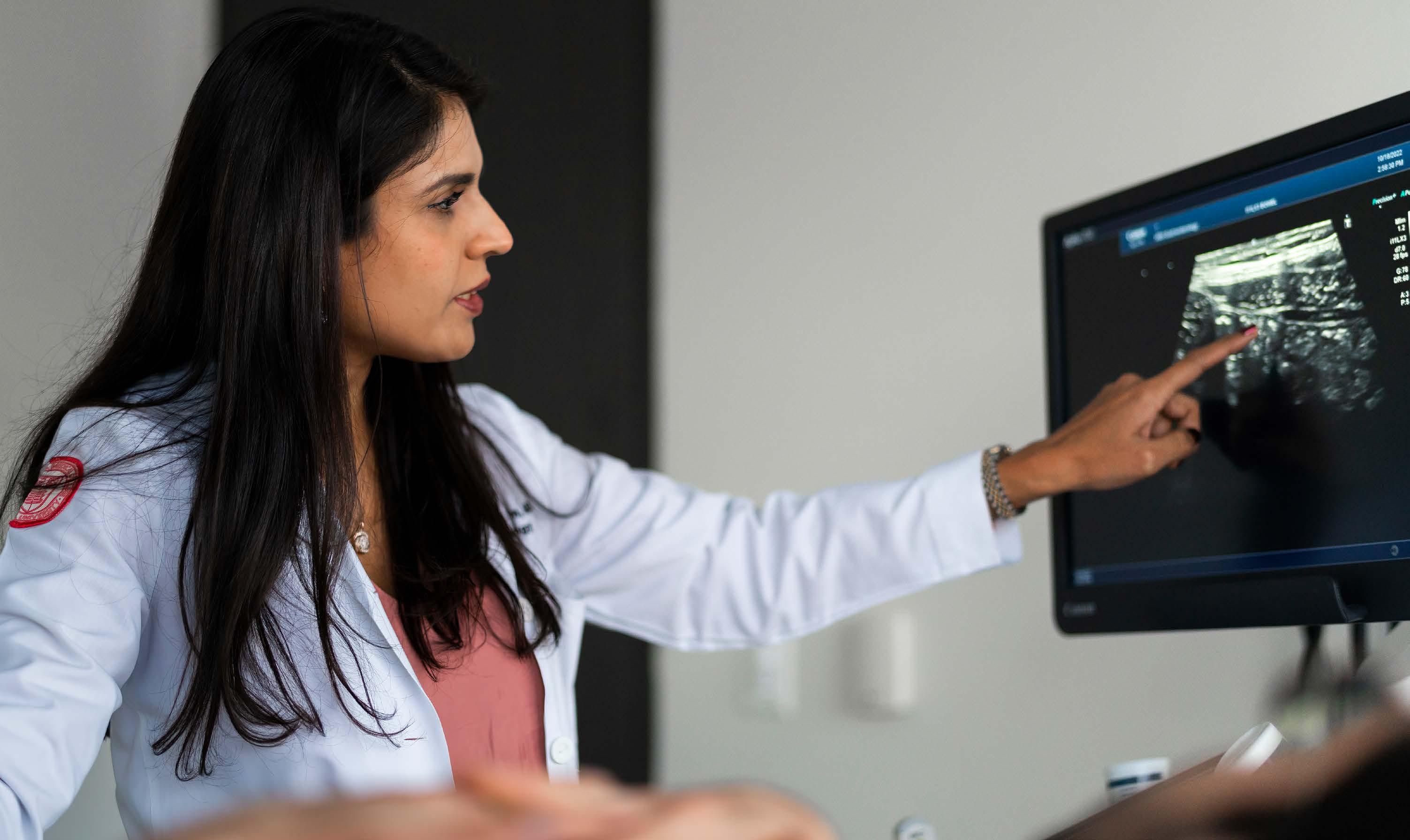
2 minute read
INTEGRATED CARE, DYNAMIC RESEARCH CROHN’S DISEASE: SEAMLESS MEDICAL AND SURGICAL APPROACHES
The Fondren Inflammatory Bowel Disease (IBD) Program, directed by Bincy Abraham, MD, is unique in the region for the team’s vast experience with difficult and challenging IBD cases. Internationally respected for IBD care and research, our medical and surgical teams are unified in their approach, resulting in superior outcomes for the complicated disease.
“We have incredible collaboration with gastroenterologists, so our surgeons are very familiar with patients who might benefit from surgery well before we operate,” said Eric Haas, MD, chief, colon and rectal surgery. “And, our patients are so well-optimized medically, we’re way ahead of the game when it comes to surgery. You put all that together, and the outcomes have been phenomenal.”
Further, a close alliance with pediatric colleagues at other institutions helps provide a smooth transition of care for patients entering adulthood, and partnerships with physicians in women’s health ease patients’ anxieties during pregnancy.
Technology plays an integral role in disease management, including tools like CT, MR enterography for imaging, and chromoendoscopy for colorectal cancer surveillance in high-risk patients. Upper endoscopy and capsule endoscopy allow physicians to explore upper-GI tract and small-bowel involvement of IBD.
Houston Methodist was among the first in the U.S. to introduce intestinal ultrasound for the assessment of IBD activity. In fact, Abraham was the first physician in the country to use the technology in an adult patient.
If surgery becomes necessary, our colorectal surgeons employ advanced robotic approaches that lessen the need for extensive resection and enhance recovery times. Robotic technologies are used in strictureplasty — which preserves the bowel and reduces the necessity for future surgeries — fistula repair and bowel continuity surgery.
“The long-term benefits are substantial,” Haas said. “Recurrent obstruction rates are significantly less, we rarely see a hernia, and the need for colostomy is dramatically reduced.”
Clinical Differentiators
• Houston Methodist is among North America’s first centers to offer pointof-care advanced transabdominal ultrasound imaging of the bowel for patients with IBD.
• Our state-of-the-art infusion suite is conveniently located in the office, is staffed by experienced infusion nurses and provides access to the very latest medications.
• Our surgeons perform robotic-assisted strictureplasty and bowel continuity surgery, with superior outcomes.
• We are a tertiary referral center for J pouch surgery and have some of the highest volumes in the country for robotic-assisted restorative proctocolectomy with J pouch reconstruction.
Research Initiatives
• Clinical scientist dedicated to inflammation and microbiome research in IBD
• Site for multicenter clinical trials, offering patients access to new therapies prior to FDA approval
• Translational research in collaboration with researchers at Texas A&M University and University of Houston, looking at newer inflammatory markers that may guide future innovations in diagnosis and management
• Biorepository for long-term, large-scale studies
• Published studies on relationships between IBD and cardiovascular disease
• One of several national sites following mothers with IBD through pregnancy, and their infants through age 18, to monitor disease presentation and progress
• Looking at stem cell therapy for perianal fistulas — a partnered effort between medicine and surgery
• Natural orifice robotic surgery to avoid colostomy and abdominal wall incision during complex IBD procedures
• Robotic approaches for minimally invasive restorative J pouch surgery
“We can use this ultrasound technology in our IBD clinic and get more detailed information about the patient’s disease activity than lab work or a physical exam.”










